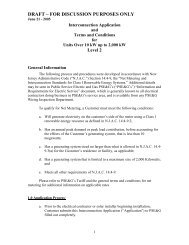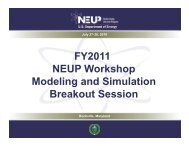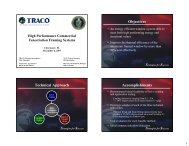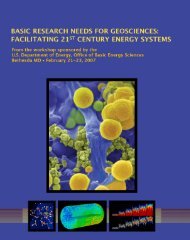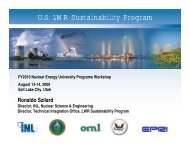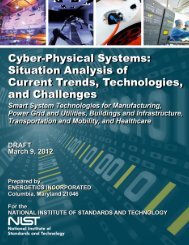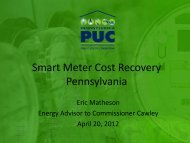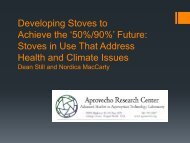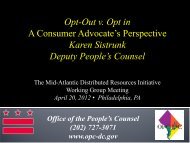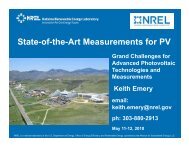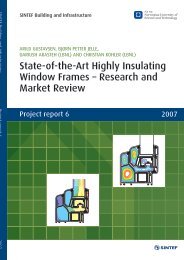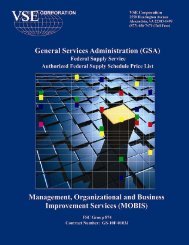Efficient Product Promotion Collaborative Fact Sheet - Clean Energy ...
Efficient Product Promotion Collaborative Fact Sheet - Clean Energy ...
Efficient Product Promotion Collaborative Fact Sheet - Clean Energy ...
Create successful ePaper yourself
Turn your PDF publications into a flip-book with our unique Google optimized e-Paper software.
INCENTIVES WORKING GROUP<br />
EFFICIENT PRODUCT PROMOTION COLLABORATIVE<br />
The <strong>Efficient</strong> <strong>Product</strong> <strong>Promotion</strong> <strong>Collaborative</strong> (henceforth, the <strong>Collaborative</strong>), an activity of the Super-efficient Equipment and<br />
Appliance Deployment initiative’s Incentives Working Group, aims to strengthen programs targeting efficient and super-efficient<br />
products. The <strong>Collaborative</strong> will connect international stakeholders throughout the energy efficiency value chain to inform<br />
program design and maximize efficiency benefits at least cost.<br />
The <strong>Collaborative</strong> will focus on incentive programs, informational campaigns, and award programs—considering their interactions<br />
with marketing strategies and existing labeling programs such as ENERGY STAR. The <strong>Collaborative</strong> will leverage the vast existing<br />
program design and evaluation knowledge base of its members and share insights internationally.<br />
Background<br />
National and subnational governments, utilities, and regulatory authorities around the world have implemented a wide range<br />
of programs designed to promote efficient products. The United States and Canada collectively budget more than $9 billion on<br />
utility demand-side management programs. Other governments are devising new programs with similar aims, but they are using<br />
different approaches. India, for example, is finalizing its Super <strong>Efficient</strong> Equipment Program, a multimillion-dollar program that will<br />
provide incentives to manufacturers of super-efficient ceiling fans and will eventually expand to other appliances. Governments<br />
and utilities also regularly invest in promotional campaigns to raise consumer demand for energy-efficient products.<br />
Large-scale and rapidly expanding appliance incentives programs offer a major opportunity to improve global product efficiency<br />
through best practice programs and creative marketing practice. There is an impressive array of existing experience with program<br />
design based on rigorous analysis of past program performance. These insights can be shared globally and further augmented<br />
through advanced approaches such as prospective analysis of program design options.<br />
The <strong>Collaborative</strong><br />
The <strong>Collaborative</strong> will gather and share information regarding the design of effective programs and marketing strategies to<br />
promote both efficient and super-efficient products to consumers worldwide. The <strong>Collaborative</strong> is not intended to focus on<br />
regulatory structures. It will not be utilized to endorse any particular product or services, or to provide consensus advice regarding<br />
the programs or policies of any participating government agency.<br />
The <strong>Collaborative</strong> is intended to involve stakeholders throughout the<br />
global energy efficiency value chain who share an interest in effective<br />
program design. Although membership in the <strong>Collaborative</strong> will be limited<br />
to governments or government agencies, the <strong>Collaborative</strong> will facilitate<br />
communication among a wide range of stakeholders from the private sector<br />
and civil society. Individual organizations or companies (such as utilities,<br />
retailers, and manufacturers) are invited to express support for the goals of<br />
the <strong>Collaborative</strong> and may engage with and provide in-kind support to the<br />
<strong>Collaborative</strong>, as appropriate.<br />
Activities<br />
To aid in the design of effective programs to promote efficient and superefficient<br />
appliances, the <strong>Collaborative</strong> will pursue the following activities:<br />
<br />
<br />
Compile existing analyses to surface and share program design<br />
insights internationally<br />
As useful, encourage new analyses of the factors most critical to the<br />
success of programs on an impact-per-dollar basis (for example,<br />
through randomized controlled trials to test different program designs<br />
and their interaction with marketing practices)
Encourage international technical work that enables<br />
more successful programs and private-sector<br />
marketing efforts to promote efficient devices<br />
Share resulting insights from these activities to<br />
improve the design of efficient appliance programs<br />
on a global basis (for example, by facilitating<br />
international, bilateral exchanges between utilities and<br />
regulators) and, as appropriate, coordinate promotion<br />
efforts to unify messaging and achieve economies of<br />
scale<br />
Governance<br />
The <strong>Collaborative</strong>’s activities will take place under the<br />
umbrella of the Financial Incentives Working Group of the<br />
<strong>Clean</strong> <strong>Energy</strong> Ministerial’s Super-efficient Equipment and<br />
Appliance Deployment Initiative (SEAD). The <strong>Collaborative</strong><br />
Labeling & Appliance Standards Program (CLASP), as the<br />
SEAD operating agent, will provide programmatic and<br />
technical support, and the Lawrence Berkeley National<br />
Laboratory (LBNL) will provide analytical support.<br />
India and the United States have both agreed to participate<br />
in the <strong>Collaborative</strong>. Outreach to all <strong>Clean</strong> <strong>Energy</strong> Ministerial<br />
governments is ongoing.<br />
The Alliance to Save <strong>Energy</strong> has agreed to support the<br />
efforts of the <strong>Collaborative</strong> in an advisory role.<br />
To take advantage of the significant progress and body<br />
of work experience of programs in the United States<br />
and Canada, the U.S. Department of <strong>Energy</strong> (DOE) has<br />
approached the Consortium for <strong>Energy</strong> Efficiency (CEE),<br />
the North American association of U.S. and Canadian<br />
administrators of utility, state, and provincial efficiency<br />
programs. CEE’s member organizations collectively<br />
budgeted more than $7.9 billion in 2011 to implement<br />
energy efficiency programs for the benefit of the customers<br />
they serve. Consistent with CEE’s mission to support<br />
the advancement of energy efficiency, the Consortium’s<br />
members welcome the opportunity to enhance the energy,<br />
economic, and environmental benefits created by their<br />
programs through internationally coordinated efforts led<br />
by the DOE through SEAD. CEE is in active discussions with<br />
DOE regarding a cooperative agreement to share U.S. and<br />
Canadian program lessons and to cooperate on mutual<br />
areas of interest, which may include support on program<br />
design through the <strong>Clean</strong> <strong>Energy</strong> Solutions Center.<br />
The <strong>Collaborative</strong>’s efforts with the <strong>Clean</strong> <strong>Energy</strong> Solutions<br />
Center will aim to support program managers seeking<br />
to design high-impact appliance efficiency programs.<br />
Support provided by the Solutions Center may include the<br />
following:<br />
<br />
<br />
<br />
<br />
Delivery of expert assistance on efficient product<br />
incentive programs, including building demand for<br />
such assistance through its outreach mechanisms<br />
Design and moderation of an expert network of<br />
government officials and others engaged in the<br />
design and implementation of appliance and<br />
equipment efficiency programs in order to foster<br />
peer-to-peer learning and exchange of experiences<br />
and approaches<br />
Outreach and training through webinars, blogs, and<br />
other virtual forums<br />
Highlight and make available key reports and<br />
tools for supporting appliance efficiency program<br />
design on the <strong>Clean</strong> <strong>Energy</strong> Solutions Center at<br />
www.cleanenergysolutions.org.<br />
Expressions of Support<br />
The following organizations support the goals of the<br />
<strong>Collaborative</strong>. These organizations may, as appropriate,<br />
engage with the <strong>Collaborative</strong> and provide in-kind<br />
support; however, expressing support for the<br />
<strong>Collaborative</strong>’s goals does not obligate any of these entities<br />
to commit resources to the <strong>Collaborative</strong> or to engage with<br />
the <strong>Collaborative</strong> directly.<br />
Alliance to Save <strong>Energy</strong><br />
Austin <strong>Energy</strong><br />
Climate Policy Initiative<br />
Consortium for <strong>Energy</strong> Efficiency<br />
Natural Resources Defense Council<br />
Northeast <strong>Energy</strong> Efficiency Partnerships<br />
Pacific Gas and Electric<br />
Southern California Edison<br />
23 April 2012<br />
CLEANENERGYMINISTERIAL.ORG<br />
SUPEREFFICIENT.ORG




